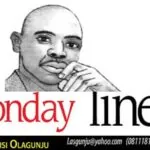I was giving a talk at an “intellectual” event recently and was asked to evaluate the metrics of great leadership. Of course, I did not hesitate to mention two touchstones namely: big ideas and tough execution.
The great leader must be smart, creative, courageous, respectful, constructive and be able to provide communication cues from big ideas to his associates. He must create value-adding momentum in the workplace by being an inspirational role model. He must also, generate non-stop excitement and genuine hope of sustainable success for employees and his organisation.
In today’s very challenging economic climate, the great leader, to win always, must harness the power of neuroscience, behavioral economics and psychology. These are tools to effectively manage the dynamics of his people. His watchwords always should be “not just planning but also generating hefty and enduring results.”
Let me at this point join the debate on whether leadership qualities are innate or learned.
My own perspective is that these qualities are sometimes innate but must be progressively improved upon to unlock potentials. I started “prophesying” to myself at a very tender age that I would be an entrepreneur and founder of an enduring organisation that would be grown into a huge conglomerate. I was however, very much conscious of the fact that in spite of my innate leadership qualities and my ambition, there was a need for me to adequately equip myself with the best formal education.
Another point is that leadership can also be “thrust” on an individual through ancestral lineage or progenitors. We have examples in Africa, Europe and Asia.
We have also seen individuals emerge as good leaders because they have comparative advantage in the power of influence and relationship management. They can mobilize people through persuasiveness in speech (eloquence) for political, social and economic goals. They have the capacity to speak better than others and can therefore ignite inner motivation and influence. They also use courage, confidence and character to very great advantages.
But leadership in today’s business organisation is “a skill practice”. A deliberate mind shift that unlocks great qualities to achieve outcomes. The great leader must achieve “unbeatable positioning” for his organisation with business opportunities notwithstanding big challenges and obstacles. The leader must apply science-led patterns to effectively manage the dynamics of his workforce and rev-up as well as transform engaged and disengaged employees into enthusiastic and productive team members. He must constantly lead the organisation with confidence, courage, warmth and empathy to always win with purpose. He must stay true to his competence and experience, be open to feedbacks, constantly learn, explore and innovate. He must hone his exceptional creative thinking skills to sort out problems with fresh solutions. He must connect with his people and nurture creativity by encouraging team members to share their different and even conflicting perspectives.
The great leader must not only lead but also coach. He must be a good listener, have compassion and help his colleagues. He must always ignite passion and performance in employees as well as make work (execution of daily responsibilities) meaningful. Employee fulfilment must be intentionally created. The leader must show appreciation, impact resilience and build a happy community in the workplace. Employees must enjoy the work they are doing and the people they are working with.
Some leaders sometimes set themselves back with laziness. They do not read books and improve themselves with what they learn from coaches, mentors and consultants. Leaders must build creative confidence in themselves and keep achieving results instead of giving excuses. Results-assuring precedence and new strategies are very useful for daily guidance.
Some leaders thought the advantages of AI (Artificial Intelligence) will have a deleterious effect on the immense strength and critical (even indispensable) strength of people (or employees) as distinctive and reliable asset.
Today, the ability to effectively lead the workforce is the distinguishing quality for improved productivity and assured sustainable growth. The great leader must totally eradicate distrust in the workplace. He must prioritise people development strategies and improve ease of contributions to creativity. He must bridge interaction barriers and encourage colleagues to voice out authentic insights.
Pragmatic and outcome-focused strategists are today promoting science-led leadership. Smart leaders of organisations, they opined, must prioritise relentless efforts to empower colleagues. An important aspect of positive psychology is the “Power of the Pause”. This skill makes it incumbent on leaders to check the tendency to speak all the time. Colleagues must be given a “voice”, otherwise the leader will give room to missed opportunities. Leaders must not allow their team members to feel marginalized, unappreciated or discriminated against.
The great leader must create an inclusive culture that guarantees supportive energy, commitment and value-yielding collaboration. Every team member must be supported and encouraged to contribute their best always.
We must have in the workplace a “chemical bond” that engenders front facing ethical traits, teamwork, collaboration and inclusion. Constant achievement of corporate goals must be processed as sustainable people-led projects. The bond in the workplace should take the form of a laboratory that churns out great results. Every team member must have a chance to speak and be acknowledged. Team members must be encouraged to come together as committed stakeholders to sort out opportunities and challenges.
The entire team must shape outcomes together and form bonds that create great as well as highly beneficial values.
READ ALSO: Integrity: My signature leadership commitment
WATCH TOP VIDEOS FROM NIGERIAN TRIBUNE TV
- Let’s Talk About SELF-AWARENESS
- Is Your Confidence Mistaken for Pride? Let’s talk about it
- Is Etiquette About Perfection…Or Just Not Being Rude?
- Top Psychologist Reveal 3 Signs You’re Struggling With Imposter Syndrome
- Do You Pick Up Work-Related Calls at Midnight or Never? Let’s Talk About Boundaries







